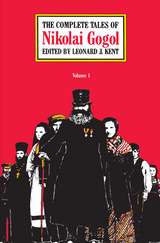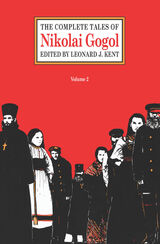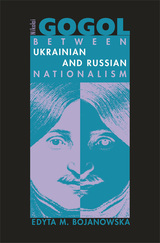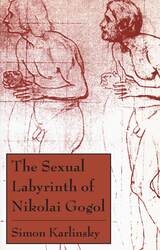
"It is good to have a complete collection of Gogol's tales in paperback. . . . Professor Kent has thoroughly revised Mrs. Garnett's conscientious and skillful translation, eliminating the Victorianisms of her style, correcting mistakes and pruderies of diction, and making the whole translation sound much more contemporary and alive. But he has avoided the whimsicality and 'curliness' in which some recent translators indulged, and he has not changed or suppressed anything material. He has also supplied helpful notes which are often the first annotation in English, and he has written an introduction which steers the correct middle course between making Gogol an irresponsible artist of the grotesque and proving him a documentary historian of backward Russia."—René Wellek, Yale University


Nikolai Gogol, Russia’s greatest comic writer, is a literary enigma. His masterworks—“The Nose,” “The Overcoat,” The Inspector General, Dead Souls—have attracted contradictory labels over the years, even as the originality of his achievement continues to defy exact explanation.
Donald Fanger begins by considering why this should be so, and goes onto survey what Gogol created, step by step: an extraordinary body of writing, a model for the writer in Russian society, a textual identity that eclipses his scanty biography, and a kind of fiction unique in its time.
Drawing on a wealth of contemporary sources, as well as on everything Gogol wrote, including journal articles, letters, drafts, and variants, Fanger explains Gogol’s eccentric genius and makes clear how it opened the way to the great age of Russian fiction. The method is an innovative mixture of literary history and literary sociology with textual criticism and structural interrogation. What emerges is not only a framework for understanding Gogol’s writing as a whole, but fresh and original interpretation of individual works.
A concluding section, “The Surviving Presence,” probes the fundamental nature of Gogol’s creation to explain its astonishing vitality. In the process a major contribution is made to our understanding of comedy, irony, and satire, and ultimately to the theory of fiction itself.

No other writer captured the fraught relations between Ukrainian and Russian nationalisms with as much complexity and lasting relevance as Nikolai Gogol. This pathbreaking book illuminates the deep cultural stakes of today’s geopolitical conflict.
The nineteenth-century author Nikolai Gogol occupies a key place in the Russian cultural pantheon as an ardent champion of Russian nationalism. Indeed, he created the nation’s most famous literary icon: Russia as a rushing carriage, full of elemental energy and limitless potential.
In a pathbreaking book, Edyta M. Bojanowska topples the foundations of this russocentric myth of the Ukrainian-born writer, a myth that has also dominated his Western image. She reveals Gogol’s creative engagement with Ukrainian nationalism and calls attention to the subversive irony and ambiguity in his writings on Russian themes. While in early writings Gogol endowed Ukraine with cultural wholeness and a heroic past, his Russia appears bleak and fractured. Russian readers resented this unflattering contrast and called upon him to produce a brighter vision of Russia. Gogol struggled to satisfy their demands but ultimately failed.
In exploring Gogol’s fluctuating nationalist commitments, this book traces the connections and tensions between the Russian and Ukrainian nationalist paradigms in his work, and situates both in the larger imperial context. In addition to radically new interpretations of Gogol’s texts, Bojanowska offers a comprehensive analysis of his reception by contemporaries.
Brilliantly conceived and masterfully argued, Edyta Bojanowska fundamentally changes our understanding of this beloved author and his place in Russian literature.

"A brilliant new biography that will long be prized for its illuminating psychological insights into Gogol's actions, its informative readings of his fiction and drama, and its own stylistic grace and vivacity."—Edmund White, Washington Post Book World
READERS
Browse our collection.
PUBLISHERS
See BiblioVault's publisher services.
STUDENT SERVICES
Files for college accessibility offices.
UChicago Accessibility Resources
home | accessibility | search | about | contact us
BiblioVault ® 2001 - 2024
The University of Chicago Press









